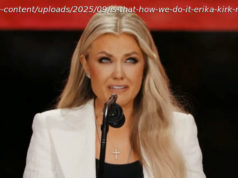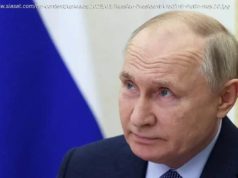UNC scandal, NCAA investigation
Jan Boxill got the letter early Friday, sent by her lawyer, from the NCAA. She took a deep breath, and read the first paragraph over and over.
The former philosophy professor and women’s basketball counselor didn’t even finish reading it. What she saw stopped her. Despite 18 allegations that she provided athletes with impermissible academic assistance, the NCAA’s Committee on Infractions said it could not conclude that Boxill acted unethically or that she provided women’s basketball players with extra benefits.
Boxill was cleared. She ran upstairs to tell her husband, then called her daughters.
“It’s certainly a sense of relief,” she said. “It’s been a long three years. What it’s done to my family, reputation and so forth, it’s been difficult.”
The most important thing, she said, was the committee’s determination that it could not find unethical behavior on her part. “I have always felt that I performed ethically,” she said.
Boxill wore many hats at UNC-Chapel Hill. She was a teaching professor in philosophy and academic counselor for the women’s basketball team. She was a radio color analyst for women’s basketball games. She rose to the top faculty governance position at the university, chair of the faculty. She was also director of UNC’s Parr Center for Ethics, a position that would later be the source of derision and jokes about Boxill.
The committee said the fact that Boxill was a teacher and a counselor to athletes made their review of the allegations more complicated.
The report issued Friday pointed out that UNC officials and lawyers had argued that the 18-year “paper classes” in African and Afro-American Studies did not violate NCAA bylaws. However, the university was quick to agree that Boxill provided “too much help to women’s basketball student-athletes.”
But the committee said the question of whether Boxill crossed the line was not clear-cut.
Boxill had argued that of the many students she taught for more than 25 years, only a small fraction were athletes, and she didn’t treat them any differently. At a hearing in Nashville in August, Boxill told the panel that she used hands-on teaching methods with all of her students, providing them with references, outlines, model papers and other resources. She would require students to “reconstruct” arguments, and sometimes demonstrate such rewrites to her students.
“You give examples and you talk, you scribble up on people’s papers, to show them what they’ve done wrong and here may be a way to change it,” Boxill said Friday, describing her way of teaching.
The university forced Boxill to retire. She has said that the 2014 Wainstein report unfairly drew conclusions from portions of email chains with students, and lacked complete records of students’ work. One example was a series of emails between Boxill and Debby Crowder, the office secretary in the AFAM department who graded papers for the AFAM classes that never met, about giving a passing grade, a D, to a women’s basketball player. Boxill said the email was not asking Crowder to give the student a grade in a so-called paper class, but asking Crowder to get the paper to another professor who happened to be out of the country.
“What I felt with the Wainstein report and which he told me many times he was writing his impressions, and that’s what you got,” she said. “There are so many presumptions and inaccuracies and baseless speculations.”
The Committee on Infractions concluded that it couldn’t make a determination that impermissible academic assistance occurred.
“There are gaps in the nature of the assistance she provided where the record includes partial email chains and lacked all the completed work,” the report said. “These gaps clouded the context surrounding her actions and would have required the panel to assess edits, suggestions and content down to the line-by-line and word basis. The panel was not in a position to make those core academic determinations.”
Boxill said people advised her not to go to Nashville to talk to the NCAA committee. Now she’s glad she did.
“The one thing I was hoping for is exactly what happened. I was able to give a statement of my true feelings, what really went on with me and my students — whether they be basketball, anybody, all students — and how I teach,” she said. “Basically it was to tell my story and be as honest and truthful and forthcoming as I could and I did.”
Boxill said she wasn’t sure whether she would pursue legal action.
“I do feel it was unfair,” she said of the university’s treatment of her. “I think much of this could have been handled easily had they talked to me. After all I love this university, not just athletics. I loved every job that I had at the university. I loved teaching and I think that’s what came across in my statement to the NCAA. My whole passion is teaching.”
On Friday, Boxill said she was flooded with text messages, many of them from former students. For now, she said, she wants to digest the news that maybe her nightmare is over.
“This has been my life,” she said. “It has consumed me for three years.”
Sign up today for a free 30 day free trial of unlimited digital access.






